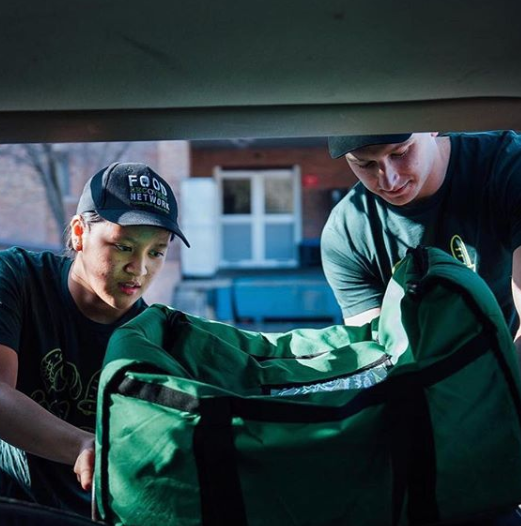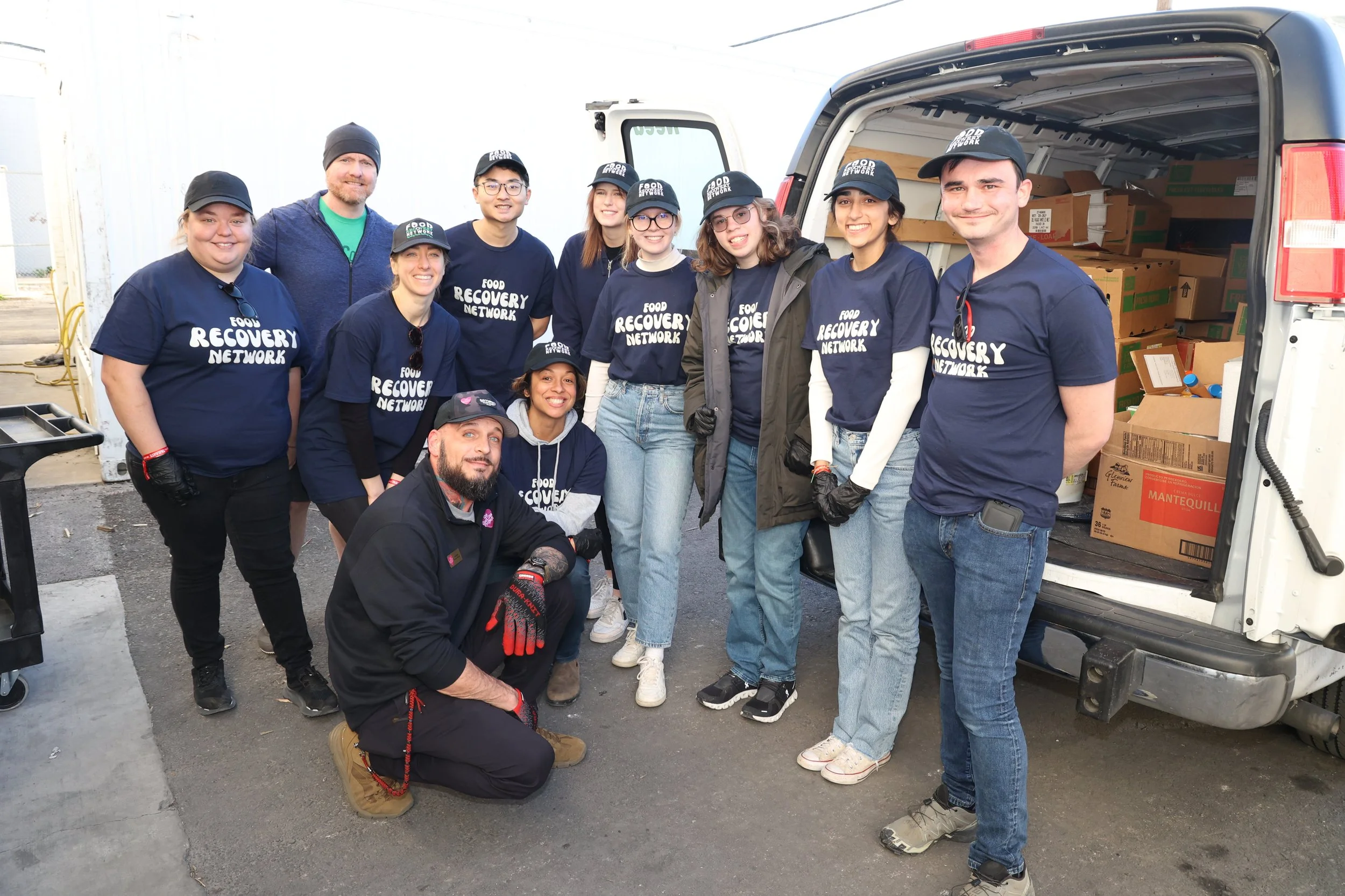For the last several weeks I have spent time reflecting on the act of volunteering, what it means to me, and what it means for Food Recovery Network. This reflection was part of my writing process as I prepared a post about the subject for our blog as we all celebrate our National Day of Service in honor of Dr. Martin Luther King’s birthday and his vision of a “Beloved Community”. I then moved from reflection to curious research to familiarize myself with the history of the holiday. I wanted to find out not only when MLK’s birthday became a holiday, but how Dr. King articulated his notion of national service, and when and where it showed up in his time as a national activist and freedom fighter. As I did some online research, more and more questions revealed themselves.
To begin to answer these questions, I think it’s helpful to understand the historic struggle fought to make Dr. King’s birthday into a national holiday. I’ve shared only a fraction of what I’ve learned in this post, and if any of you have other resources you’d like to share, please comment!
The American Association of State Colleges and Universities website reminds us that, “Legislation was signed in 1983 creating a federal holiday marking the birthday of Rev. Dr. Martin Luther King, Jr. This federal holiday was first observed in 1986.”
After reading that last sentence, did you just become as curious as I did about the time gap between the day the holiday was created and when the holiday was first observed? I needed to learn more, and as I continued to look for further resources, I also understood that I was relearning this information now from the perspective of an adult, a social and racial justice activist, and a continuous learner who seeks information from the perspectives of those who didn’t necessarily have their voices represented in the textbooks of my youth.
Dr. King was assassinated in 1968, and four days after his death, Congressman John Conors of Michigan, who served for over 50 years and was the cofounder of the Congressional Black Caucus, proposed a bill to establish a federal holiday for Dr. King’s birthday. Congressman Conors was not alone in his desire to honor Dr. King, joining with Coretta Scott King and many unions that Dr. King walked alongside in their fight for jobs to try to win a national holiday to honor Dr. King throughout the 1970s. A post from the Reading Partners blog notes that in the early 1980s, “Coretta Scott King submitted six million signatures supporting a bill to establish a federal holiday in King’s honor; Stevie Wonder’s ‘Happy Birthday,’ a song dedicated to King, inspired a rush of public support.”
I have to let everyone know that I was steeped in historical awe and wonder as I learned about the history of MLK Day. I continued to have more questions about how this national holiday that means so much to me was shaped. I wanted to learn more about Congressman John Conors, further my understanding of the Congressional Black Caucus, dig deeper into the life of Coretta Scott King and her adult children, and while I adore the music of Stevie Wonder and have sung that happy birthday song numerous times, I did not know the origin of it and wanted to know more.
And, importantly for me, I paid close attention to the swirl of emotions I was experiencing as I read more about the struggle to make Dr. King’s birthday a national holiday. “Struggle” is an understated verb to truly comprehend the magnitude of effort needed to make Dr. King’s birthday a national holiday, and I am thankful there are numerous accounts of the many individuals like Congressman Connors and Mrs. Coretta Scott King who doggedly fought for this distinction.
“However,” notes the Reading Partners post, “the legislation did not guarantee that individual states would observe MLK Day. Some states combine it with a holiday celebrating Confederate general Robert E. Lee, or rescinded observance of the holiday altogether. It was not until 2000 that all states finally acknowledged the holiday…” In fact, Alabama and Mississippi still celebrate Dr. King’s birthday and Lee on the same day. Arkansas had been the third state to do so up until 2019, but still honors Lee in a memorial in October.
I used the term “relearn” when I described the process of researching MLK Day. I remember when I listened to the audio version of the book Parting the Waters: America in the King Years 1953-1964, by Taylor Branch, and learned about the moment in which Dr. King was living, how he was understood during his actual life, and how he is memorialized after his death and by whom. My recent research is only the next step of many future ones in relearning what MLK Day truly means, to me and all of us.
I hope this post can be a reminder that the spark of curiosity can be ignited all around us. In a subsequent post, I will talk more in depth about Food Recovery Network and how we honor Dr. King’s birthday and our National Day of Service.
Resources:
American Association of State Colleges and Universities page on MLK
National Geographic post, “The Controversial History of Martin Luther King Day”
Reading Partners blog post, “The History of the Martin Luther King Jr. Day of Service.”
Further Learning:
Parting the Waters: America in the King Years 1953-1964






